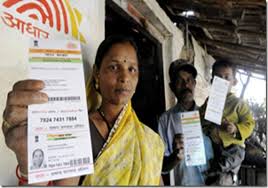On September 22, Yahoo! announced that the personal data of half a billion users had been stolen in 2014. The theft of data was attributed to “state-sponsored” hackers, which some informed sources in California and Washington, D.C. said meant the Chinese secret service. Subsequently, claims emerged about a cracker selling personal information of Yahoo! account users on the dark Web.
The company’s failure to discover or report the loss for two years will raise enormous problems for its embattled chief executive, Marissa Mayer, not to mention its covert participation in the surveillance of the incoming emails of its users. But it will be even more costly for the U.S. telecom giant, Verizon, which agreed to pay a bargain basement amount of $4.8 billion for the company in July. In the U.S., class action litigation for consumers’ damages from the loss of their private information (including mobile phone numbers, passwords, and addresses) is inevitable, and will be costly: Yahoo! may ultimately owe the people harmed by this theft far more than Verizon was willing to pay for it.
Making Aadhaar mandatory
But this is not just a story from afar for Indian citizens following the controversy about the onset of Aadhaar. Despite a crystal clear prohibition issued by the Supreme Court against making Aadhaar registration mandatory, the Indian government and enthusiastic parties in both State governments and industry have proceeded to adopt Aadhaar-based technology and impose requirements for Aadhaar registration for social services and benefits — from educational scholarships to booking railway tickets.
Investigations have revealed that dozens of Aadhaar requirements are in tension with the Supreme Court’s order. Contempt petitions brought against agencies for flouting the order will soon be heard by the Supreme Court. When the judges hear those petitions, they should be keeping Yahoo! in their thoughts.
The Yahoo! breach made news around the world primarily because of its scale: it’s really hard to lose the data on 500 million people. But not for Aadhaar. When completed, Aadhaar’s database will cover the world’s second largest population. If (or when) the database is compromised, it will not be possible for people to change their passwords. Biometric data is essentially unchangeable. Whether the retinal data currently stored, or the entire human genomes that may eventually be stored there, a breach in the Aadhaar data store will disperse information crucially identifying each Indian and that cannot be modified in response to the loss.
So, if Aadhaar is breached, what is the plan for the morning after the breach? Despite all the puffery, and all the claims of social subsidies immune to corruption and payments systems offering convenience to the unbanked millions, no one has so far intimated how Aadhaar’s proponents suggest we manage the obvious risk that stares us all in the face if Aadhaar registration becomes mandatory for most social purposes.
No perfect security
The plan cannot be for perfect security, operating flawlessly forever, for Aadhaar. No government can at present promise perfect security for even its most critical personnel data. No “platform” company, with all the immense profits earned from processing the data of hundreds of millions of customers, can claim to guarantee perfect security of customer data. No Indian citizen can, or should, trust a story in which Aadhaar data security is never breached.
Until we can see that the government has a realistic plan to manage the risks involved in placing all Indians’ proof of identity in one big box, making Aadhaar registration mandatory means imposing on every Indian citizen an unmanaged, possibly unmanageable, risk of digital environment catastrophe. Imposing permanent damage on the entire society because entrepreneurs and civil servants were in a hurry, because they couldn’t wait for the sober second thoughts imposed by the rule of law, even for the best of modernising and reformist motives, is a price far too high to pay. And until there is national privacy legislation, with a real system for making parties pay damages when they injure individuals by losing their critical personal information, the courts may have no opportunity or power to deal with the consequences of poor planning and hasty public policy after the fact.
Only the Supreme Court’s clarity and willingness to back its order with enforcement ensure that law — rather than public relations and the optimistic talk of the start-up culture — stands between our society and the consequences of hubris.
So when the judges convene to hear argument on the Aadhaar motions, they should have that emphatic punctuation at the end of Yahoo! very firmly in mind.
Eben Moglen is Founding-Director of Software Freedom Law Center and professor of law and legal history at Columbia University. Mishi Choudhary is technology lawyer and Executive Director at SFLC.IN, a donor-supported legal services organisation.

October 21, 2016 at 4:09 pm
Supreme Court should step in urgently to protect large number of the aadhar cardholders. Court has a duty to direct government at the centre to act in public interest.